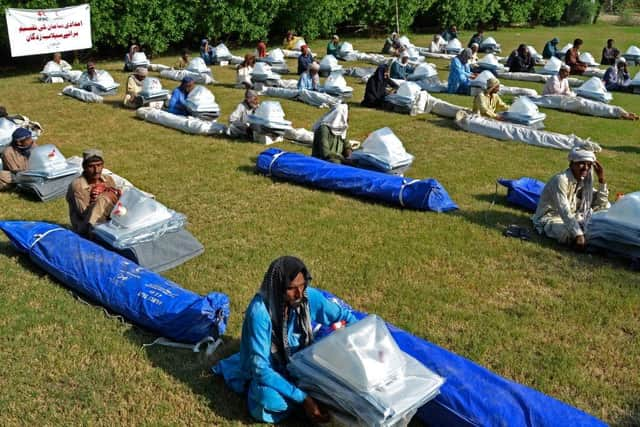Pakistan floods: 'Deep concern' over second disas
Director general Tedros Adhanom Ghebreyesus said that standing water enables mosquitoes to breed and spread diseases such as malaria and dengue, while women were being forced to give birth away from their normal health systems and children were missing vaccination.
Meanwhile, new figures from charity Unicef found that at least 528 children have been killed in the disaster. It said the rains had washed away villages and left around 3.4 million children in need of assistance.
Advertisement
Hide AdAdvertisement
Hide AdMore than three times the average rain fell in August in Pakistan, with around a third of the country affected by the flooding. Landslides and flash floods have occurred due to unprecedented downpours, while the river Indus burst its banks. Many public health facilities, water systems and schools have been either destroyed or damaged.


Mr Ghebreyesus said: “I am deeply concerned about the potential for a second disaster in Pakistan: a wave of disease and death following this catastrophe, linked to climate change, that has severely impacted vital health systems leaving millions vulnerable. The water supply is disrupted, forcing people to drink unsafe water, which can spread cholera and other diarrhoeal diseases.”
A recent study published by scientists at Imperial College London found the intense rainfall in Pakistan was made worse by global heating, which has also made future floods more likely. Scientists from the World Weather Attribution initiative said climate change could have increased the most intense rainfall over a short period in the worst affected areas by about 50 per cent.
Abdullah Fadil, Unicef representative in Pakistan, said: “I have been in flood-affected areas for the past two days. The situation for families is beyond bleak, and the stories I heard paint a desperate picture. All of us on the ground see malnourished children, battling diarrhoea and malaria, dengue fever, and many with painful skin conditions.
“The sad reality is that without a massive increase in support, many more children will lose their lives. An estimated 16 million children have been impacted by these ‘super floods’ and at least 3.4 million girls and boys remain in need of immediate, life-saving support."
Comments
Want to join the conversation? Please or to comment on this article.
